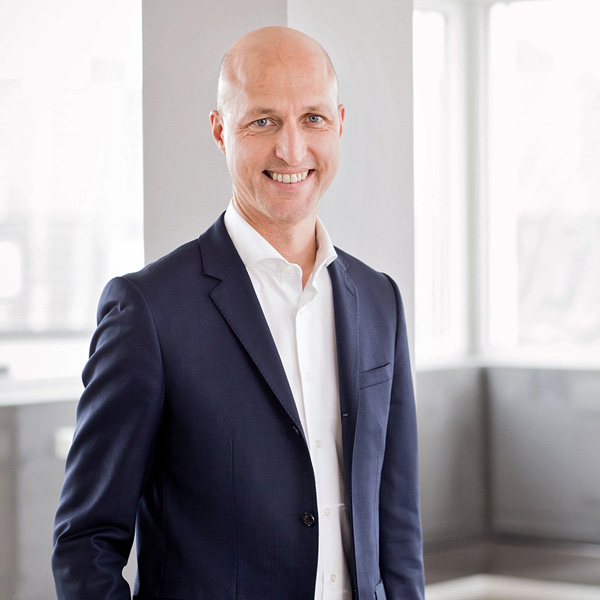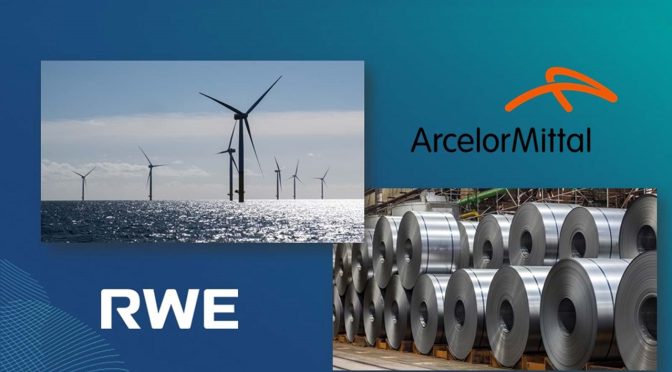ARC Marine Ltd., Verlume Ltd. and ForWind, the Center for Wind Energy Research at the University of Oldenburg, have won RWE’s first international Innovation Competition. The companies participated in the competition that was launched by RWE in November last year, searching for innovative solutions to improve the ecological impact of offshore wind farms and to optimise the system integration of offshore wind into the energy grid. RWE initiated this competition because it has the strong conviction that collaborating with companies, start-ups and individuals around the world provides new valuable insights for the sustainable and cost-efficient expansion of offshore wind.
The competition focused on two key areas: ecology and system integration. ARC Marine from England is the winner of the Ecology Innovation and focuses on sustainable cable and scour protection. In the category System Integration, there are two winners: Verlume from Scotland, a company that works on offshore subsea battery systems with integrated intelligent energy management, and ForWind from Germany, which has developed a unique methodology for lidar- and observer-based forecasting of wind power production.
For the selection of the winners, RWE has performed a thorough technical assessment with a jury consisting of leading experts from RWE in all different technical and commercial fields, and discovered the great potential of the innovations. During a live ceremony at RWE’s headquarters in Essen, the winners received a specially-made award, handed over by Frank Scholtka, Head of Electrical, Instrumentation & Control from RWE Renewables, on behalf of RWE’s innovation team. Furthermore, the winners are in close exchange with RWE’s innovation team and will jointly assess opportunities for further developing their solution towards commercialisation. RWE has already included the winners into its bid for the Dutch offshore wind farm Hollandse Kust West site VI and VII and will evaluate the use for other commercial offshore wind projects.
ARC Marine wins Innovation Ecology Award for a positive impact on biodiversity
RWE has set itself the ambition of delivering a net positive contribution to biodiversity on future offshore wind farms. The ecology innovation competition targeted specific innovations to support this mission. ARC Marine develops solutions to improve the ecosystem impact of offshore windfarms. The company’s mission is to accelerate reef creation through nature inclusive designs, such as their scour solution Reef Cubes: the world’s first plastic-free and low-carbon solution for the restoration of marine habitat and biodiversity. Reef Cubes produce around 90 percent less CO2 than their concrete counterparts and can be created carbon neutral from the point of manufacture. Next to that, ARC Marine develops sustainable marine matts for cable protection at cable crossings. These matts are a concrete-like cable protection that enhances biodiversity as they are designed to have a surface structure with small cracks and holes, creating habitat for an array of marine life.
Verlume and ForWind, Wind Energy Research Center at the University of Oldenburg, win Innovation System Integration Award to match supply and demand
A higher share of renewable power sources in the future and the increasing geographical clustering of offshore wind farms lead to an increased volatility in the energy production. That is why RWE targeted innovations to support the vision of a perfect match between supply and demand, in order to overcome the challenges of volatile offshore renewable energy generation in the future.
Verlume is bringing multi-purpose storage solutions offshore with a subsea lithium-ion battery, which has a modular and highly scalable design that will lead to a more balanced power output by shaving the peak power production offshore. Beyond preventing grid curtailment, the battery can provide multiple offshore services, such as frequency response, black start capability for wind turbines and charging of hybrid or fully electric service vessels. This will enable to further reduce the CO2 footprint of offshore wind farms and associated logistics.
ForWind, the Center for Wind Energy Research at the University of Oldenburg, was selected as winner for the development of an innovative lidar-based power forecasting methodology. This has the potential to significantly improve the integration of wind power in future energy systems by accurately predicting ramp rates of wind turbines and supporting grid stability. This can help with securing grid reliability during so called ramp events, sudden and strong changes in power caused by meteorological events leading to a significant drop or increase of supply. If not predicted accurately, both in timing and amplitude, these can result in critical grid imbalances.
RWE as a leading player in sustainable energy with a strong position in the Netherlands
RWE is a leading global player in renewable energy and number 2 worldwide in offshore wind. The company currently has 18 offshore wind farms in operation; it is constructing the Sofia (1.4 gigawatts off the UK coast) and Kaskasi (342 megawatts off the German coast) wind farms, and has a total of more than 10 gigawatts of offshore wind farms under development. For many years, RWE has been a partner of the Dutch government to advance the energy transition by investing in clean energy solutions. The Netherlands is one of the key markets where RWE aims to further expand its renewable energy portfolio. RWE currently operates seven onshore wind farms in the Netherlands with a total installed capacity of over 330 megawatts (RWE’s pro-rata share), with new ones under development and construction as well as solar farms including the floating PV project in Amer. RWE is also working on the expansion of CO2-free flexible production capacity and the development of onshore and offshore hydrogen projects, such as H2opZee, NortH2 and FUREC to help industry reduce CO2.

“As one of the world’s leading renewable energy companies, RWE promotes the pursuit of innovation in offshore wind energy. To support this ambition, we have launched this Innovation Competition to establish, in addition to our own expertise, refreshing new partnerships with resourceful people and companies. From a large number of high quality applications ARC Marine, Verlume and ForWind, the Center for Wind Energy Research at the University of Oldenburg, emerged as the winners. The winners have devised solutions that help to accelerate the energy transition by creating a positive impact on marine ecology and integrating offshore wind energy into the energy system. We strongly believe in working together in order to make a real difference for the future energy supply.”


